“Absolutely super service in Sparc. Top class physios at all times. Highly recommend them for both sports and general physio needs.”
-
Shockwave therapy is a non invasive strategy that aims to hep with the management of musculoskeletal conditions. The shockwave is a physical sound wave “shock,” not an electric one.
-
It aims to stimulate healing & tissue remodelling
It aims to reduce pain
-
We treat these types of heel pain with shockwave therapy:
Plantar Fascia, Heel Spurs, Achilles Tendon Pain, Posterior Heel Pain.
Common Heel pain symptoms that we hear people report include pain on long walks, pain first thing or on first steps in the mornings, stabbing sharp pain and pain on harder surfaces or in hard soled shoes.
These symptoms do not resolve with ice, rest, symptoms and have generally been taking place for an extended period of time.
Shockwave therapy can be very useful for these types of symptoms
-
This therapy works without the use of X-rays or drugs; it stimulates the body’s natural self- healing process. There is actually an immediate reduction of pain and improved ease of movement. Secondary effects are minor. Shockwave therapy may also eliminate your need for surgery.
-
Plantar heel pain is one of the main conditions we treat but shockwave is used for a wide range of different injuries.
We treat a wide range of conditions such as plantar heel pain, achilles and patella tendon issues, heel spurs, calcific shoulders and a range of other tendon issues.
-
Research suggests results show an overall result improvement rate of 77% of chronic conditions that have not been cured with other kinds of treatment.
We combine it with other modalities such as exercise programmes, physiotherapy and biomechancial assessemnts
-
Plantar Fasciitis
Lateral/Medial elbow tendinopathy (tennis elbow/golfers elbow)
Frozen Shoulder
Plantar Fascia
Heel Spurs
Morton’s Neuroma
Shoulder tendinopathies (Calcific Rotator Cuff Tendinitis)
Hallux Rigid
Bursitis
Achilles Tendinopathy
Patellar tendinopathy (Jumpers Knee)
Anterior Tibial Syndrome
Stress Fractures
Osteoarthritis
Trochanteric Bursitis
Hamstring tendon
Adductor tendon
-
1000-3000 shocks are administered per session, which last approximately 5-10 minutes. Your physiotherapist will administer your treatment based on best practice for individual conditions.
Normally three treatments are necessary at weekly intervals for acute issues; For chronic conditions it is recommended to undertake 4 sessions. There is a small possibility that additional treatments may be necessary if your condition is very chronic.
“Could of skipped out of my appointment the difference in my back pain in just one session was amazing. I left not only with the pain reduced but with a program and great advice. Would highly recommend.”
-
Your chartered physiotherapist performs the treatment
-
Complications do not normally happen with shock wave therapy. It is low risk but is not always successful.
It can cause increased pain and sensitivity, which normally gets better with time.
People who have poor sensation (neuropathy) or hypersensitivity at the proposed treatment site should not have ESWT.
When should I not have ESWT and when do I need to be careful about treatment?
ESWT is NOT allowed if you:
are pregnant
have had a steroid injection to the same area in the last three months
have an infection, wound or tissue problems at the proposed treatment site
have poor sensation (neuropathy) or hypersensitivity in the target area.
You must tell the clinician if you:
have a cardiac pacemakerare taking any anti-coagulant (blood thinning) medication are taking any anti-inflammatory medication.
-
Make sure you wear good supportive footwear and continue to follow the advice given by your clinician.
You should stop taking non-steroidal anti-inflammatory drugs such as aspirin, 24 hours before ESWT treatment.
-
You can carry on with your usual activities but avoid any exercise which feels painful for two days (48 hours) after treatment.
Don’t put ice on the treated area, or take any non-steroidal anti- inflammatory medication such as aspirin, ibuprofen or diclofenac, as this will stop the inflammatory and healing processes the shockwave treatment has started.
You may feel pain relief from the treatment straight away, but long term effects are normally felt after three months. You will have a follow up appointment in clinic three months after your treatment.
-
If you feel you would benefit from shockwave therapy, book online now. For your first session it is important to book a 45 shockwave appointment, as your chartered physiotherapist will determine your suitability for treatment.



